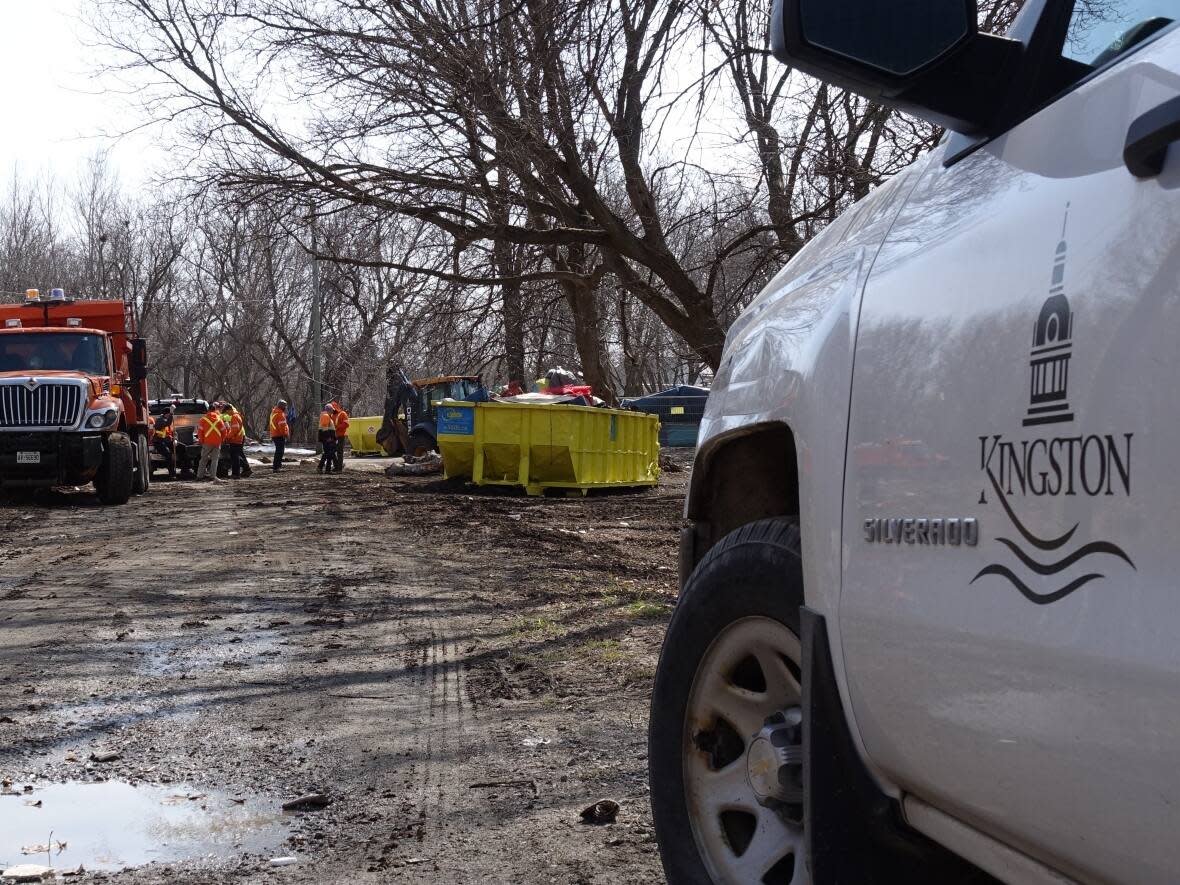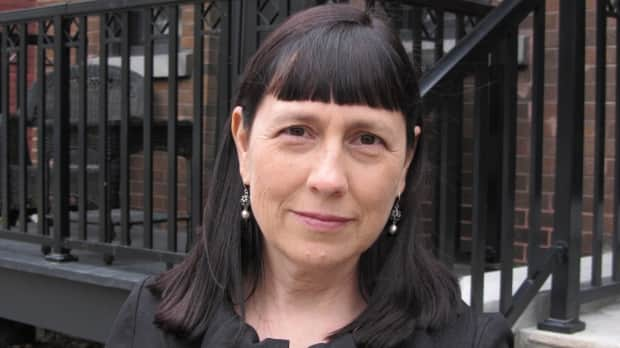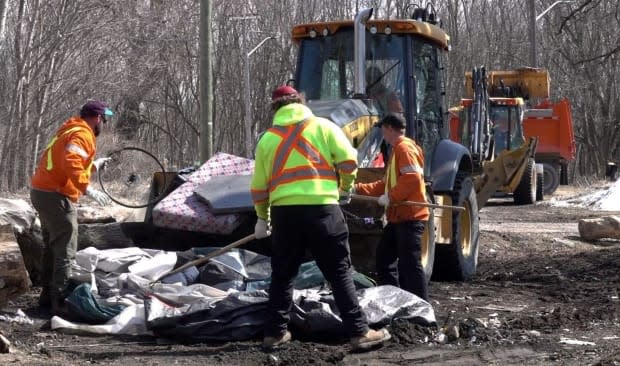Why cities are taking 'incremental approach' to dealing with encampments

The deadline for people living in Kingston's Belle Park to leave or be considered trespassers has come and gone, yet some encampment residents remain.
Notices issued Monday ordered those staying in makeshift shelters and tents near the Integrated Care Hub (ICH) to pack up and go, but the city has announced it doesn't plan to physically remove anyone — at least not yet.
Lanie Hurdle, who is the city's chief administrative officer, said staff are focused on cleaning up the site while strongly encouraging people to relocate. It's an example of the sort of piecemeal approach one expert says has become more common.
Cities continue to grapple with emerging case law around encampments and what it means for how they work with residents, according to Martha Jackman, a specialist in constitutional law and a professor at the University of Ottawa.
On whether a city can unilaterally clear away tents on public property, she says the simple answer is "no."
"Kingston cannot do that without raising the Charter issues that were raised in the Kitchener case," said Jackman
Jackman is referring to a January court decision that barred the Region of Waterloo from evicting people who camped at one of its vacant lots because the shelter system didn't have enough beds.
The judge found removing those staying at the site would violate section seven of the Canadian Charter of Rights and Freedoms, which guarantees the life, liberty and personal security of all Canadians.
Jackman called it a "strong precedent" for why more must be done before encampments are levelled.
"It is going to have to be an incremental approach that is focused on the residents of the encampments, as much as it is on the concerns of people living around."

Kingston officials said they'd considered that ruling, but pointed to the efforts they'd made in recent months to increase shelter space and provide lower-barrier options.
The city faces an ongoing challenge to provide access to those who use substances. The ICH is home to Kingston's only supervised injection site and some of those camping nearby have said they wanted to remain close to its services.
City raises safety concerns
Hurdle said there is shelter space available, but Kingston is limited in managing substance use.
"Only the federal and provincial government can regulate and fund consumption treatment services, there is only one in the city," she said, adding the city can't make any changes.
"Otherwise, it would be a non-sanctioned illegal kind of drug house, to be frank."
Hurdle also mentioned safety concerns about substance use in shelters, even though some have still used while staying in shelters.
Some shelter locations conduct a syringe cleanup every morning, she said.

Hurdle said some encampment residents have said they're not interested in indoor shelter, adding it's "pretty hard" for the city to meet that expectation.
She estimated the number of people living at the encampment has dropped from 50 to 60 to fewer than 10, crediting outreach efforts along with increased shelter space.
"We want this to be as peaceful as possible," Hurdle said, noting the city handed out just six trespass notices last week.
"If the city wanted to take further action, the city would probably seek a [court] injunction."
Cities in a 'really difficult place'
John Done is working to avoid any evictions as the executive director of the Kingston Community Legal Clinic, which was representing seven encampment residents as of Tuesday.
Done said the clinic wrote city council on March 21 citing the Waterloo Region case, arguing the city may not have the right to evict the residents.
"After the letter, the city has made a decision not to proceed to evict people," he said, adding his team is continuing to speak with city lawyers.
"We're hoping ... we can find some solutions that are going to be better than simply putting it before a judge to decide."
Municipal governments have been left in a "really difficult place," said Jackman, blaming decades of failure by higher levels of government to address mental health and housing.
She believes a housing-focused strategy, similar to what's being discussed in B.C., could make a difference in Ontario.
"Encampments are still at a size where you can imagine that, if the provincial government took that approach, we might actually be able to get ahead of it."


